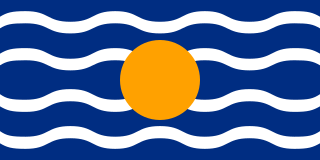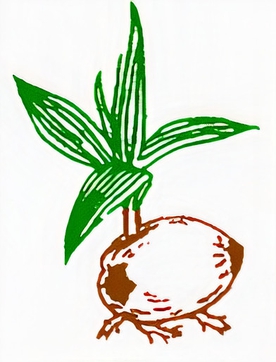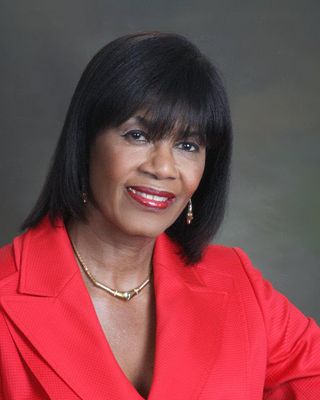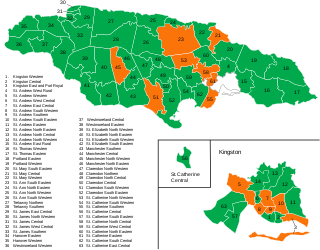Related Research Articles

Michael Norman Manley was a Jamaican politician who served as the fourth Prime Minister of Jamaica from 1972 to 1980 and from 1989 to 1992. Manley championed a democratic socialist program, and has been described as a populist. He remains one of Jamaica's most popular prime ministers.

The People's National Party (PNP) is a social-democratic political party in Jamaica, founded in 1938 by Norman Washington Manley who served as party president until his death in 1969. It holds 14 of the 63 seats in the House of Representatives, as 96 of the 227 local government divisions. The party is democratic socialist by constitution.

The West Indies Federation, also known as the West Indies, the Federation of the West Indies or the West Indian Federation, was a short-lived political union that existed from 3 January 1958 to 31 May 1962. Various islands in the Caribbean that were part of the British Empire, including Trinidad and Tobago, Barbados, Jamaica, and those on the Leeward and Windward Islands, came together to form the Federation, with its capital in Port of Spain, Trinidad and Tobago. The expressed intention of the Federation was to create a political unit that would become independent from Britain as a single state — possibly similar to Canada, the Federation of Australia, or the Central African Federation. Before that could happen, the Federation collapsed due to internal political conflicts over how it would be governed or function viably. The formation of a West Indian Federation was encouraged by the United Kingdom, but also requested by West Indian nationalists.

Sir Vere Cornwall Bird, KNH was the first Prime Minister of Antigua and Barbuda. His son, Lester Bryant Bird, succeeded him as Prime Minister. In 1994, he was declared a "National Hero".

The Fiji Labour Party, also known as Fiji Labour, is a political party in Fiji. Most of its support is from the Indo-Fijian community, although it is officially multiracial and its first leader was an indigenous Fijian, Dr. Timoci Bavadra. The party has been elected to power twice, with Timoci Bavadra and Mahendra Chaudhry becoming prime minister in 1987 and 1999 respectively. On both occasions, the resulting government was rapidly overthrown by a coup.

Edward Philip George Seaga was a Jamaican politician. He was the fifth Prime Minister of Jamaica, from 1980 to 1989, and the leader of the Jamaica Labour Party from 1974 to 2005. He served as leader of the opposition from 1974 to 1980, and again from 1989 until January 2005.

The National Alliance for Reconstruction (NAR) was the governing party in Trinidad and Tobago between 1986 and 1991. The party has been inactive since 2005.
The West Indies Federal Labour Party (WIFLP) or Federalists was one of two main Federal parties in the short-lived West Indies Federation, the other being the West Indies Democratic Labour Party (DLP) or Democrats. The party was the first national party of the planned West Indies Federation. In the 1958 West Indies federal elections, the party was victorious, winning 25 of the 45 seats in the Federal Parliament of the West Indies Federation.

Dame Mary Eugenia Charles, was a Dominican politician who was Prime Minister of Dominica from 21 July 1980 until 14 June 1995. The first female lawyer in Dominica, she was Dominica's first, and to date only, female prime minister. She was the second female prime minister in the Caribbean after Lucina da Costa of the Netherlands Antilles. She was the first female in the Americas to be elected in her own right as head of government. She served for the second longest period of any Dominican prime minister, and was the world's fourth longest-serving female Prime Minister, behind Sheikh Hasina of Bangladesh, Sirimavo Bandaranaike of Sri Lanka and Indira Gandhi of India.

The People's Action Movement (PAM) is a political party in Saint Kitts and Nevis. The party currently holds one of the 11 seats in the National Assembly. PAM operates only in Saint Kitts and for the 2022 general election is in a 'One Movement' alliance with the Concerned Citizens' Movement (CCM) operating in Nevis, following the breakdown of the governing Team Unity alliance. PAM is a member of the Caribbean Democrat Union, the regional affiliate of the International Democrat Union and shares close links with other centre-right party members in the Caribbean such as the Jamaica Labour Party.

Portia Lucretia Simpson-Miller is a former Jamaican politician. She served as Prime Minister of Jamaica from March 2006 to September 2007 and again from 5 January 2012 to 3 March 2016. She was the leader of the People's National Party from 2005 to 2017 and the Leader of the Opposition twice, from 2007 to 2012 and from 2016 to 2017.

General elections were held in Dominica on 5 May 2005. The result was a victory for the ruling Dominica Labour Party, which won 12 of the 21 seats in the House of Assembly. The opposition United Workers' Party unsuccessfully made legal challenges to several of the constituency results.

Early general elections were held in Jamaica on 15 December 1983. The election was effectively ended as a contest when the main opposition party, the People's National Party, boycotted the election to protest the refusal of the ruling Jamaican Labour Party to update the electoral roll amid allegations of voter fraud.

General elections were held in Jamaica on 18 December 1997. The ruling People's National Party of Prime Minister P. J. Patterson won 50 of the 60 seats defeating the main opposition Jamaica Labour Party.

General elections were held in Jamaica on 9 February 1989. The result was a victory for the People's National Party, which won 45 of the 60 seats. Voter turnout was 78%.
A landslide victory is an election result in which the victorious candidate or party wins by an overwhelming margin. The term became popular in the 1800s to describe a victory in which the opposition is "buried", similar to the way in which a geological landslide buries whatever is in its path. A landslide victory is the opposite of an electoral wipeout; a party which wins in a landslide typically inflicts a wipeout on its opposition.

General elections were held in Jamaica on Thursday, 3 September 2020 to elect 63 members of Parliament. As the constitution stipulates a five-year parliamentary term, the next elections were not expected until between 25 February and 10 June 2021. However, Prime Minister Andrew Holness called early elections to ensure a united response to the ongoing COVID-19 pandemic. On the advice of Holness, Governor General Patrick Allen dissolved Parliament on 13 August 2020.

The 1980 Liberian coup d'état happened on April 12, 1980, when President William Tolbert was overthrown and murdered in a violent coup. The coup was staged by an indigenous Liberian faction of the Armed Forces of Liberia (AFL) under the command of Master Sergeant Samuel Doe. Following a period of transition, Doe ruled Liberia throughout the 1980s until his murder in 1990 during the First Liberian Civil War.
The Jamaican political conflict is a long-standing feud between right-wing and left-wing elements in the country, often exploding into violence. The Jamaican Labour Party (JLP) and the People's National Party (PNP) have fought for control of the island for years and the rivalry has encouraged urban warfare in Kingston. Each side believes the other to be controlled by foreign elements, the JLP is said to be backed by the American Central Intelligence Agency (CIA) and the PNP is said to have been backed by the Soviet Union and Cuba.

Jamaica is the first English-speaking country in the Caribbean to achieve universal adult suffrage and grant women the right to be elected to Parliament. Between 1944 and 2020, a total of 47 women have been elected as members of the House of Representatives. As of September 2020 there are 18 women in the House of Representatives, the highest ever. This is a new all-time high at 29% and is the first time that female representation in the House of Representatives stands at more than a quarter of the total membership.
References
- 1 2 Jamaica's Military and Police Meet to Discuss 'Conspiracy'
- ↑ The quest for security in the Caribbean, p136
- ↑ Jamaica Releases Failed Coup Plot Details
- ↑ Political Parties of the Caribbean, 1980s to 1990s
- 1 2 3 Dieter Nohlen (2005) Elections in the Americas: A data handbook, Volume I, p432–435 ISBN 978-0-19-928357-6